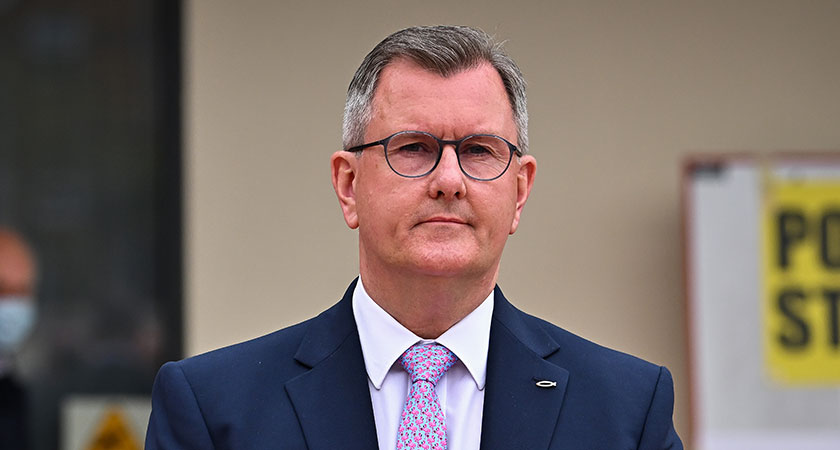THE British Government will support civil servants to keep Northern Ireland running if a working Executive is not restored by this month’s deadline.
While sharing his “disappointment” that the North remains without a devolved government as we enter 2024, NI Secretary Chris Heaton-Harris claims his department has developed a “pragmatic approach to support the Northern Ireland Civil Service in stabilising public finances and services via a sustainable budget”.
In a New Year message Mr Heaton-Harris said he had hoped to see the Executive back in action in Stormont by the turn of the month, but added “alas, as we move into 2024 Northern Ireland will have been without a fully functioning executive for 23 months”.
Last month the British Government led a series of intense discussions with leaders of the political parties in the North, in an attempt to get them to agree an effective return of the Executive.
During those meetings Mr Heaton-Harris offered them a £3billion financial package to invest on local issues if they reinstate the Executive.
The discussions failed to bring a solution to the Stormont deadlock, but the NI Secretary claims the offer remains for when the devolved government institutions return.
“It’s disappointing that the discussions concluded without the return of a devolved government in Northern Ireland, but this funding remains on the table for a returned Executive to take up on day one, and really would set Northern Ireland on a sustainable footing with a bright future ahead,” he said.
If the Executive does not return by January 18 Mr Heaton-Harris will be under a legal duty to call a new election at Stormont.
On the same day a public sector strike is planned for the North.
Both events could be avoided if the Executive reforms prior to the 18th.
 The Dup's Sir Jeffrey Donaldson continues to refuse to return to power-sharing
The Dup's Sir Jeffrey Donaldson continues to refuse to return to power-sharing“Some are now looking to the 18th of January as a deadline,” Mr Heaton-Harris said.
“It is a matter of fact that this is the date when I will once again fall under a legal duty to call a new election at Stormont and it will no longer be legally possible for an Executive to form,” he explained.
“I am considering all options carefully, however,” he added.
“I want Stormont to return as soon as possible so I am not treating this date as a target and will be relentlessly working with all parties to find a way forward.
“January 18 is also the date when thousands of public sector workers will go on strike over pay.
“A returned Executive could stop these strikes and the disruption it brings to people across Northern Ireland.
“By getting back to work they will unlock the £584 million made available by the UK Government to address public sector pay.”
Despite the talks held before Christmas and financial offer from the British Government, the DUP - who have refused to return to power-sharing at Stormont since February 2020 - claim the ongoing talks have not yet reached a conclusion.
“Over the course of recent months significant progress has been made in our negotiations with the Government,” DUP Leader Jeffrey Donaldson said following the talks.
“We will continue to work on these issues until we secure what must be achieved,” he added.
In the meantime the Civil Service remains responsible for the day to day running of Northern Ireland.
While that is being supported by the British Government, it is not a situation that can remain long-term, Mr Heaton-Harris confirmed.
“People in Northern Ireland expect and deserve devolved government back as soon as possible, to make use of the financial package we have put on the table,” he said.
“In its absence however, the UK Government cannot and will not just stand by and allow public services and finances to decline further.
“Which is why, just like last year, we are preparing a pragmatic and reasonable approach to support the Northern Ireland Civil Service in stabilising public finances and services via a sustainable budget, should the Executive not be back in place to do so itself.
“But we are clear that there must be a limit to how far the UK Government can go without an Executive in place," he added.
“That is because the financial package we have offered requires decisions on how to improve and modernise the public services and these must be taken by locally-elected politicians with the mandate to do so."

